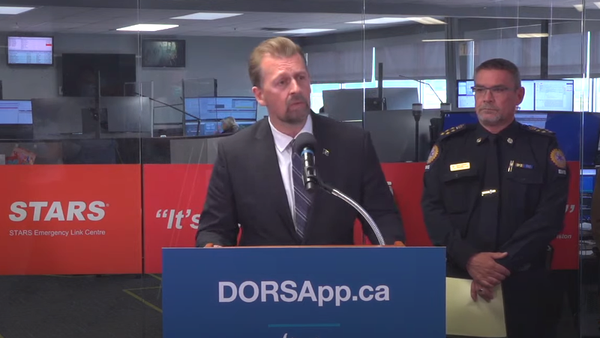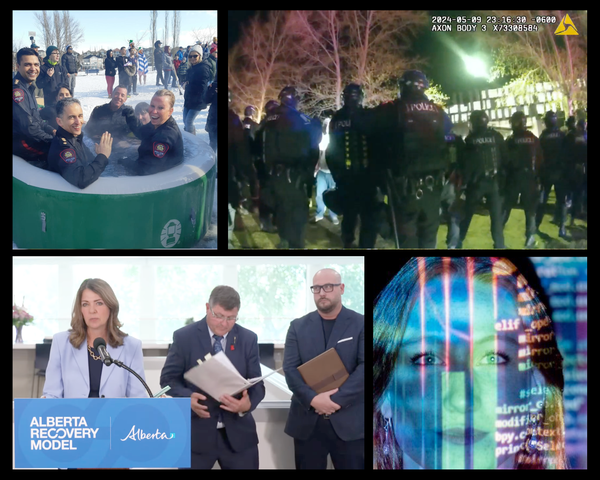13 Student-led Groups Call for Compassion Clubs Now & DULF Charges To Be Dropped
Canadian Students for Sensible Drug Policy Vancouver, Migrant Students United UBC, Climate Justice UBC, UBC Social Justice Centre, CUPE 2278 Executive Committee and eight more student-led groups speak out.

The Canadian Students for Sensible Drug Policy Vancouver, Migrant Students United UBC, Migrant Students United SFU, Climate Justice UBC, UBC Social Justice Centre, CUPE 2278 Executive Committee, El Yasmin Library at UBC Geography, Black Void UBC, Law Students for Decriminalization & Harm Reduction, UVic HARDlaw, The FentaNIL Project UBC, P.O.W.E.R. (Police Oversight with Evidence & Research) & the Canadian Students for Sensible Drug Policy Edmonton express our full support for the development and implementation of compassion clubs across Canada. Compassion clubs are “are non-medicalized drug distribution sites that offer predictable, tested and labeled substances to members who already use them, at appropriate potencies and the most useful points of community access.”
The toxic and inconsistent unregulated drug supply is the primary driver of the increasing number of drug poisoning and overdose deaths, with 21 overdose-related deaths occurring daily across the country. The negative impacts have been felt particularly by youth in Canada, as over 1,500 young adults, under the age of 29, died from unregulated opioids in the year 2023 alone.
The crisis is killing our generation.
In recent years, some provinces have implemented medical models of safer supply, where healthcare providers prescribe medical-grade alternatives to the unregulated drug supply to patients who meet their eligibility criteria. However, people who use drugs have identified significant limitations — including restricted formulations of available drugs, caps on maximum doses, stringent dispensing procedures, limited geographic reach (particularly in rural areas), and inconsistent willingness of healthcare providers to participate (especially when prescribing to youth) — with these models.
In practice, prescribed safer supply models largely do not meet the needs of people searching for viable alternatives to the unregulated drug supply. For instance, the current model is restricted to people diagnosed with a “substance use disorder,” who are (typically) people with high-intensity drug use. This disregards the need for safer supply among people who use drugs with less frequency. Ultimately, the intensive regulation within the medical models means it will always be limited in undercutting the contaminated supply, even if it helps some of the individuals who can access it.
Beyond the limitations inherent to prescribed safer supply models, there have been unfounded, politically motivated critiques of safer supply designed to further restrict access to regulated drugs. These concerns are often proclaimed as “protecting youth” from access to “harmful” drugs, despite the lack of evidence that these models have increased harm and death among youth. Notably, this discourse also disregards the needs of youth who use unregulated drugs, who continue to be subjected to the harms associated with accessing the toxic and unpredictable unregulated drug supply.
Criminalization and punitive drug laws have never stopped youth from using unregulated drugs. Indeed, 12% of Canadian post-secondary students reported having used an unregulated drug (e.g., cocaine, heroin) in the past year in 2021-2022. Post-secondary institutions generate internal and external environments that encourage drug use for both self-medicating and recreational purposes. In these environments, students use drugs to manage the anxiety and stress resulting from high-intensity academic pressure (e.g., depressants including opioids and benzodiazepines), and to improve academic achievement (e.g., stimulant use for increasing focus). Students from marginalized groups, such as LGBTQ and disabled students, have reported higher motivations to use drugs to address mental health concerns. Overdose deaths of international students continue to go untracked under the emergency response, despite reports that Gurdwaras are sending many international students home in body bags. Students also use drugs for pleasure, to increase confidence, and to enhance social activities. Rather than preventing unregulated drug use, upholding criminalization and punitive drug laws acts to increase harm by pushing students to use under riskier circumstances.
Community-based compassion clubs, run by and for people who use drugs, provide access to drugs of known quality and potency to members who would otherwise access the unregulated drug supply. While there are a range of possible models, common benefits of compassion clubs include decreased drug costs and reduced drug-related harms for members, achieved by leveraging collective buying power to impose quality control measures and economic benefits of scale.
ORDER A DULF SHIRT TO SUPPORT THEIR LEGAL FUND HERE
The Drug User Liberation Front (DULF) provides an important case study in Vancouver that demonstrates the potential of community-based compassion clubs in mitigating the harms associated with unregulated drug use.
DULF’s compassion club timeline
● August 31, 2021: DULF applied for an exemption to the relevant sections of the Controlled Drugs and Substances Act to legally operate their compassion club in Vancouver.
● July 29, 2022: Health Canada rejected their application.
● Summer 2022: DULF filed for a judicial review of this rejection (which is ongoing).
● August 2022 - October 23, 2023: Despite their rejected exemption application, DULF operated a compassion club for eligible members. This compassion club purchased heroin, cocaine, and methamphetamine from the ‘dark-web', tested them to ensure that they were not contaminated, packaged them in standardized sizes with contents and concentrations labeled, and sold them to members.
● October 23, 2023: DULF’s compassion club was raided and shut down by law enforcement, and the co-founders have been criminally charged with possession for the purposes of trafficking.
● September 2024: Findings from the evaluation of DULF’s compassion club model were published in the International Journal of Drug Policy.
Accessing DULF’s compassion club was associated with:
● Fewer non-fatal overdoses.
● No overdose deaths are known to have occurred due to the use of DULF’s substances.
● Reduced need for medical intervention during overdoses.
● No overdoses requiring naloxone administration have occurred from the sole use of DULF’s substances.
Despite the reduction in overdose-related harms members experienced due to their participation in DULF’s compassion club, its politically-motivated closure has resulted in these members once again accessing their drugs through the toxic and unpredictable unregulated drug supply. As the effectiveness of the compassion club model is clear, we fully endorse the development and operation of community-based compassion clubs across Canada as an alternative to the toxic unregulated drug supply.
We also strongly condemn the criminal charges against DULF’s co-founders and emphasize that the urgency of this drug toxicity crisis requires governments to pivot away from their current prohibitive drug policy approach to provide access to regulated drugs for anyone accessing the unregulated drug supply.
We call on the Canadian provincial and federal Ministers of Health to:
● Cease criminalization of community-based safer supply.
● Drop the criminal charges against DULF’s co-founders.
● Expand access to non-medical avenues of regulated drugs for people who use drugs, including youth who are under 18.
● Meaningfully consult youth who use drugs when developing initiatives that impact them.
Harm reduction is crucial for protecting the health and safety of Canadians. As students, voters, and future leaders in health policy, we fully support evidence-based approaches, including safer supply programs managed by people who use drugs.
Sincerely,
Canadian Students for Sensible Drug Policy - Vancouver
Migrant Students United - UBC
Migrant Students United - SFU
Climate Justice UBC
UBC Social Justice Centre
CUPE 2278 Executive Committee
El Yasmin Library at UBC Geography
Black Void UBC
Law Students for Decriminalization & Harm Reduction
UVic HARDlaw
The FentaNIL Project UBC
P.O.W.E.R. (Police Oversight with Evidence & Research)
Canadian Students for Sensible Drug Policy - Edmonton
This article was updated to include UVic HARDlaw.




